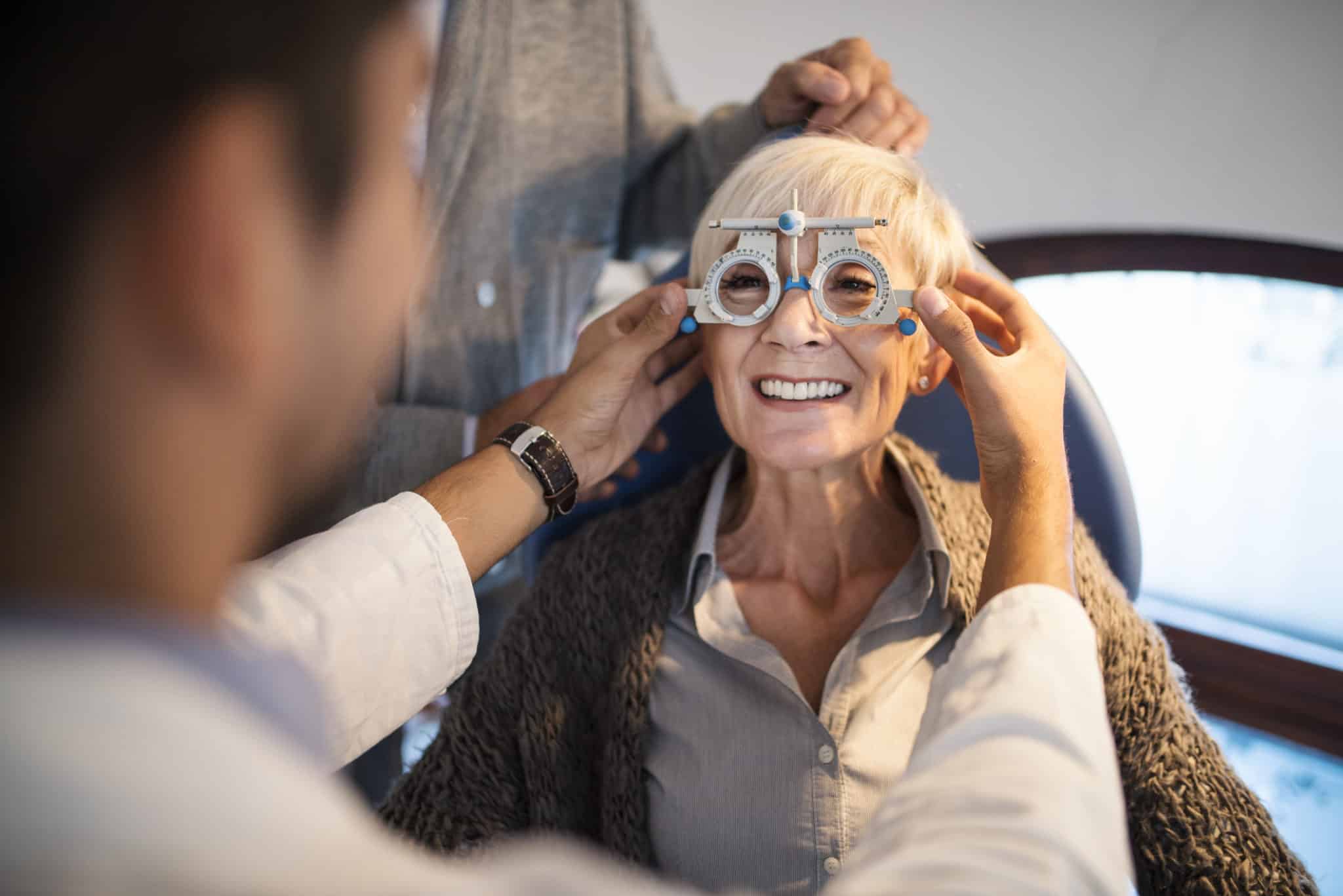A Guide to Preventing and Treating Cataracts in Seniors

According to the Centers for Disease Control and Prevention (CDC), cataracts affect almost 20.5 million people over age 40 in the USA alone – a figure set to rise to around 30 million by 2028. Here’s some important information on preventing and treating cataracts in seniors, from our assisted living center in Gloucester County, NJ.
What Are Cataracts and Why Do They Occur?
When the lens of the eye clouds over it’s known as a cataract. The clouding starts slowly – even unnoticeably. But, it will increase until light can no longer enter the eye and the individual can no longer see. While cataracts can occur at birth, this condition primarily affects older people.
Cataracts are caused by a clumping of protein in the eye. The lens itself is made of protein and water and, over time, the protein can become sticky. As this clump grows, it blocks out light entering the eye. No one knows exactly why this happens, but certain risk factors make you more likely to have cataracts. Eleven risk factors include:
- Unprotected exposure of the eyes to UV (ultra-violet) light
- Poor nutrition
- Diabetes
- Obesity
- Smoking
- Hypertension
- Chronic use of corticosteroids
- Chronic use of statin medications
- Injury to the eye and eye surgery
- Hormone replacement therapy
- Genetic history
How to Treat Cataracts
Cataracts are commonly treated through surgery. Typically, an outpatient procedure, the clouded cataract is removed and replaced with a permanent artificial lens. Recovery time is between six and eight weeks. The results are very positive, restoring clear vision and making reading, watching TV, moving around the home, and socializing easy again.
5 Tips for Preventing Cataracts
Of course, prevention is always better than a cure! You can help to prevent cataracts and protect your vision by:
- Eating lots of fresh, leafy greens and fruits high in antioxidants
- Committing to regular eye exams
- Limiting alcohol intake and stopping smoking
- Effectively managing health conditions like diabetes, obesity, and high blood pressure
- Protecting your eyes by wearing UV-certified sunglasses and shade hats
High Quality Care in a Beautiful, Welcoming Environment – Assisted Living in Gloucester County, NJ
Pitman is an assisted living community in Gloucester County, NJ, offering high-quality, scalable assisted living services in a comfortable and well-supported environment. As part of the United Methodist Communities network, we also offer rehabilitation, access to therapists, hospice care, respite care, and memory care and support services. We welcome seniors from all faith backgrounds.
To find out more, please visit our website at https://umcommunities.org/pitman/ contact us today or book a personal tour of assisted living in Pitman, NJ.




